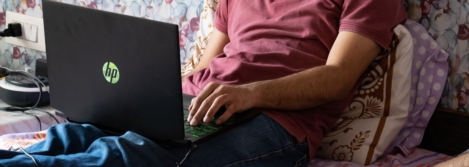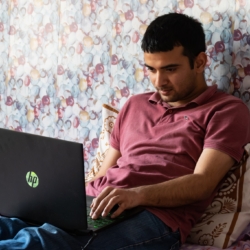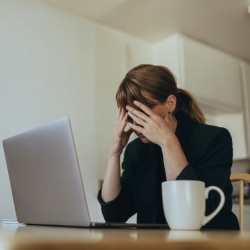To provide the best experiences, we use technologies like cookies to store and/or access device information. Consenting to these technologies will allow us to process data such as browsing behaviour or unique IDs on this site. Not consenting or withdrawing consent, may adversely affect certain features and functions.
The technical storage or access is strictly necessary for the legitimate purpose of enabling the use of a specific service explicitly requested by the subscriber or user, or for the sole purpose of carrying out the transmission of a communication over an electronic communications network.
The technical storage or access is necessary for the legitimate purpose of storing preferences that are not requested by the subscriber or user.
The technical storage or access that is used exclusively for statistical purposes.
The technical storage or access that is used exclusively for anonymous statistical purposes. Without a subpoena, voluntary compliance on the part of your Internet Service Provider, or additional records from a third party, information stored or retrieved for this purpose alone cannot usually be used to identify you.
The technical storage or access is required to create user profiles to send advertising, or to track the user on a website or across several websites for similar marketing purposes.
 As a new year comes into view, many SMEs in the UK are concerned about the mental health of their staff as much as their ability to drive revenue, new research claims. The new survey conducted by Hiscox, asked 1,000 SME business decision-makers from across the UK about their experiences during 2020 and their subsequent outlook into 2021. (more…)
As a new year comes into view, many SMEs in the UK are concerned about the mental health of their staff as much as their ability to drive revenue, new research claims. The new survey conducted by Hiscox, asked 1,000 SME business decision-makers from across the UK about their experiences during 2020 and their subsequent outlook into 2021. (more…)






 ‘Stress by Sector’ data released by
‘Stress by Sector’ data released by 
 In April 2020, 47 percent of UK employees worked from home and for many, they still haven’t returned to the office. The events of 2020 have been unprecedented, as rules and advice from the government have changed at rapid rates in response to the Coronavirus Pandemic. But one thing that remained relatively consistent is the encouragement for those who can, to work from home.
In April 2020, 47 percent of UK employees worked from home and for many, they still haven’t returned to the office. The events of 2020 have been unprecedented, as rules and advice from the government have changed at rapid rates in response to the Coronavirus Pandemic. But one thing that remained relatively consistent is the encouragement for those who can, to work from home. 
 New research from
New research from 
 Research by employee benefits provider
Research by employee benefits provider 
 Almost half of UK businesses have seen an employee move on because their mental health wasn’t being looked after, with a quarter losing a key member of their workforce, according to new
Almost half of UK businesses have seen an employee move on because their mental health wasn’t being looked after, with a quarter losing a key member of their workforce, according to new 
 When Donald Trump was
When Donald Trump was 
 In a recent
In a recent 
 Despite the last-minute extension of the furlough scheme, new research conducted among UK business leaders claims that great concern remains around making redundancies and in particular the legal risk. The survey of over 440 UK business leaders, conducted by employment law and HR support firm
Despite the last-minute extension of the furlough scheme, new research conducted among UK business leaders claims that great concern remains around making redundancies and in particular the legal risk. The survey of over 440 UK business leaders, conducted by employment law and HR support firm 
 New research published by
New research published by 









December 15, 2020
Preparing for a mental health epidemic is a shared responsibility
by Sheena Pirbhai • Comment, Wellbeing